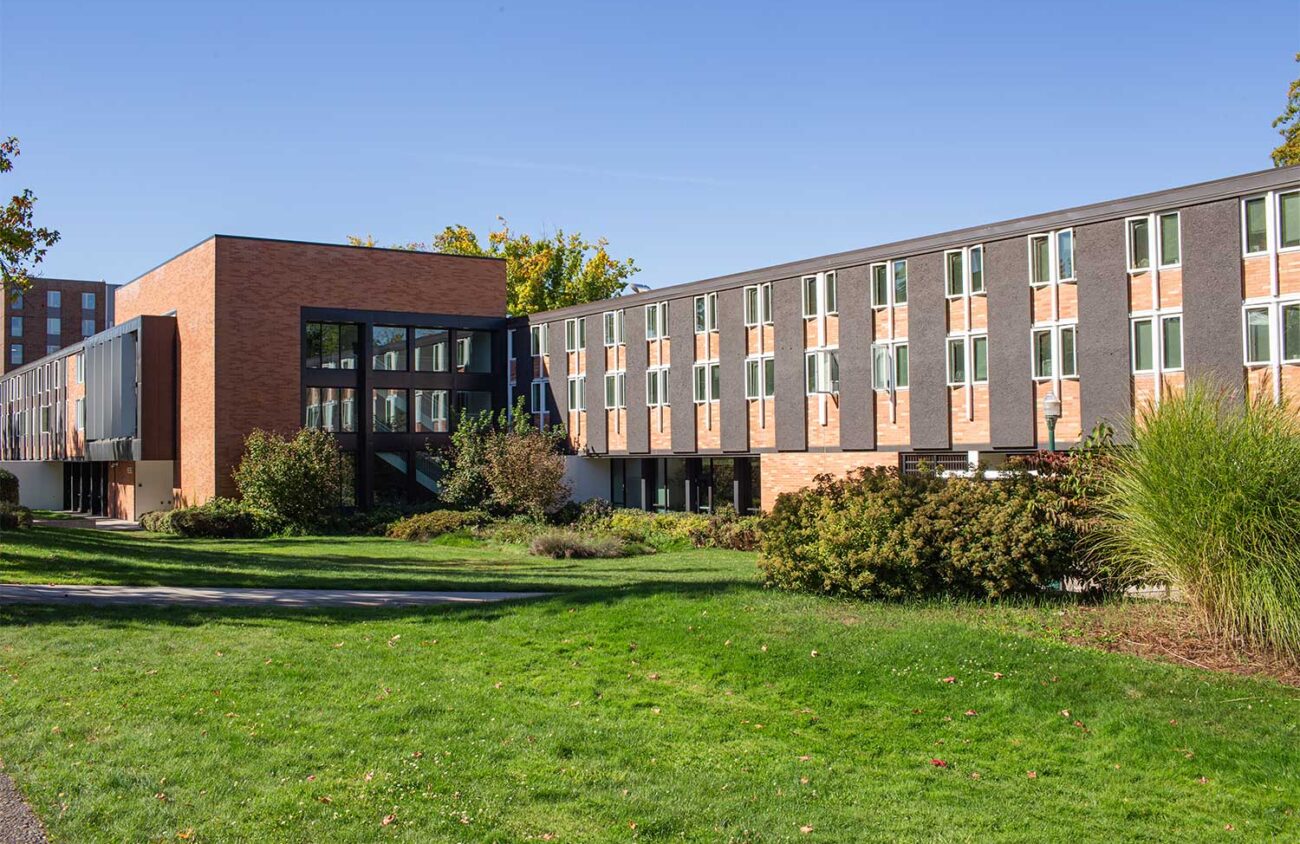As tuition costs keep climbing, housing is just another expense that many students have to worry about when leaving home for college. Finding affordable housing in today’s market can be a serious challenge, especially when the University of Oregon requires first-year students to live on campus. But don’t worry too much — there are options for everyone.
Dorm life can be fun, but it can also be challenging. As a former student myself, it was a pretty formative experience for me to live among other college students, almost all of whom are taking that first step into independence. You don’t have to cook, you have a small space to keep clean and you’re almost always less than 10 minutes away from your classes.
That being said, it’s small, expensive and college students can get rowdy. “You can touch both sides of the walls with your arms,” says third-year UO student Bryson Brown. “You pretty much are squeezing between two beds.” Brown lived in the Justice Bean Hall dormitory before moving to off-campus housing.
Yearly rates for dorm living range from $12,557 to $27,564, depending on the chosen meal plan and dorm building. The UO Basic Needs Program offers rent and utility assistance, but funding can be limited and off-students must qualify before receiving subsidies.
In an email to Eugene Weekly, assistant dean of Students and director of Basic Needs Julia Morrill writes, “The awards from the funds are offered to enrolled students who are facing financial challenges which might include being late on rent and/or utilities, having an eviction notice or struggling to pay rent due to other unexpected circumstances like a roommate moving out without notice, etc.”
The Basic Needs Program also has the Landing Pad, which is an emergency housing facility launched in 2022 that provides temporary housing for students who are experiencing a housing crisis. Students can stay at the Landing Pad for two to 14 nights, free of charge.
While the UO does typically require first-year students to live on-campus, not every student has to do it. There’s a few ways you can get out of dorm living if it’s just not for you. One way is if your parents live locally. You can opt to continue to live with them and save on housing costs. Other accepted exemptions include: students who took a gap year, students who are married, veteran students, students with disabilities, students over the age of 21 and students who are caring for a dependent who is living with them.
So what do you do if you’re not living with your parents or in the dorms? It depends on your budget and lifestyle. For those looking for the more traditional apartment style living, there’s countless options around campus that offer both student-exclusive housing as well as mixed housing options. Some apartment communities, like The Capri, offer housing exclusively to students, while others like the Hilyard House offer housing near campus that isn’t student exclusive. For Lane Community College students, there’s Titan Court — a student living apartment with free parking, a computer lab and an outdoor courtyard. If you’re renting an apartment in a mixed use facility and expect to be assigned a roommate, you might end up living with someone who isn’t a student — just keep that in mind.
Other options include renting a house, a duplex or even living in a co-op. Cooperative housing is a type of real estate where instead of paying rent, tenants are shareholders in the home. Each shareholder then has the right to occupy one room of the cooperative. Some co-ops are run by nonprofits, like the North American Students of Cooperation or NASCO, a nonprofit alliance of cooperative housing complexes across the U.S. and Canada.
There are three co-ops near campus, all operated by the Student’s Cooperative Association, a local co-op network. They are: the Lorax Manner, the Janet Smith House and the Campbell Club. All three are located on Alder Street, just across from campus. The Lorax Manner is a queer-centered space, known for its activist culture.
The Janet Smith house is for graduate and non-traditional students.he Campbell Club, the oldest Eugene student co-op, is known for its DIY culture. Cooperative living is unique and is known to be accepting of all people regardless of their identity. Waitlists for co-ops can be long, and it’s a competitive marketplace, so don’t expect to be able to move in right away.
To live in a co-op, each member is expected to pay dues. However, some cooperatives allow for members to pay for their housing by providing maintenance and upkeep services on the property. Other co-ops besides those run by the SCO exist in Eugene, but they’re not student focused or student exclusive.
Finding housing is a delicate balance between what works emotionally and financially. Each option comes with its own set of pros and cons. “There’s so many options across Eugene,” says third-year data science and business student Jack Smith. “There’s obviously apartments, there’s townhouses, there’s regular houses. I’d say just look around and you’ll find something for you.”
To learn more about off campus housing for UO students, visit OffCampusHousing.uoregon.edu. For LCC, go to Lanecc.edu/experience-lane/housing.
